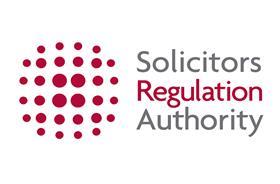The Solicitors Regulation Authority must improve its approach to explaining its decisions amid concerns about the transparency of its policy making. An enhanced system for justifying changes made at board level is one recommendation from a health-check of all regulators’ performance by the Legal Services Board.

The super-regulator today published its findings in relation to all eight legal regulators, with each scoring at least the minimum standard required by a new assessment framework drawn up a year ago.
Some areas for improvement are identified, including how the SRA communicates decisions made by its board or executive. The SRA was considered ‘not sufficiently transparent’ in this regard and is expected to publish more information and to do so more promptly.
The regulator, which does not allow the public or media to attend board meetings, is now required to review its publication policy and ensure that it publishes evidence behind decisions that are taken. Checks will be carried out in May to review the SRA’s progress in meeting these objectives.
The LSB also wants the SRA to improve the accessibility of information about disciplinary records of solicitors. This will come about through a new digital register being collated by the SRA.
The solicitors’ regulator must also start to develop a new approach to assuring the competence of solicitor advocates, after a controversial proposed assessment scheme was shelved last year. The LSB will progress on a new advocacy review programme in May.
The report overall concludes there was ‘sufficient assurance’ from each regulator that they have met the minimum required level of performance against the majority of the outcomes. Indeed, the LSB did not raise a single red flag against any aspect of any regulator’s approach.
The LSB introduced a new approach to assessment of regulators’ performance in December 2017 and this was the first report setting them against five new standards and 26 underpinning outcomes. The five key standards for each regulator relate to regulatory approach, authorisation, supervision, enforcement and leadership.



























15 Readers' comments